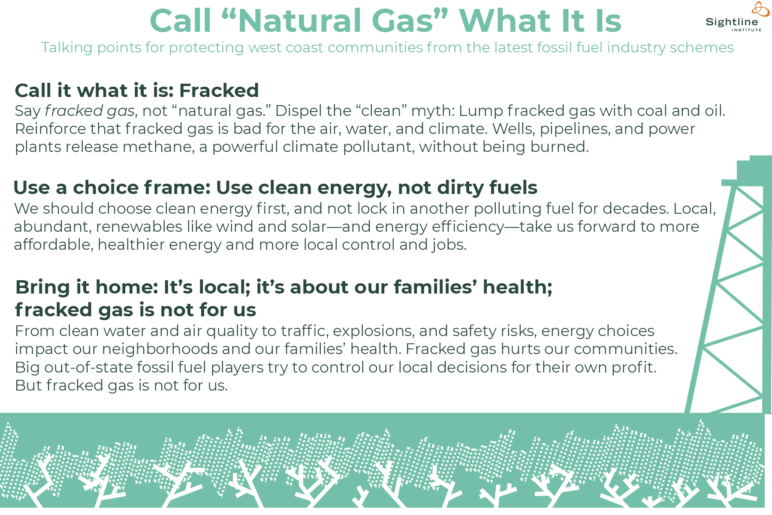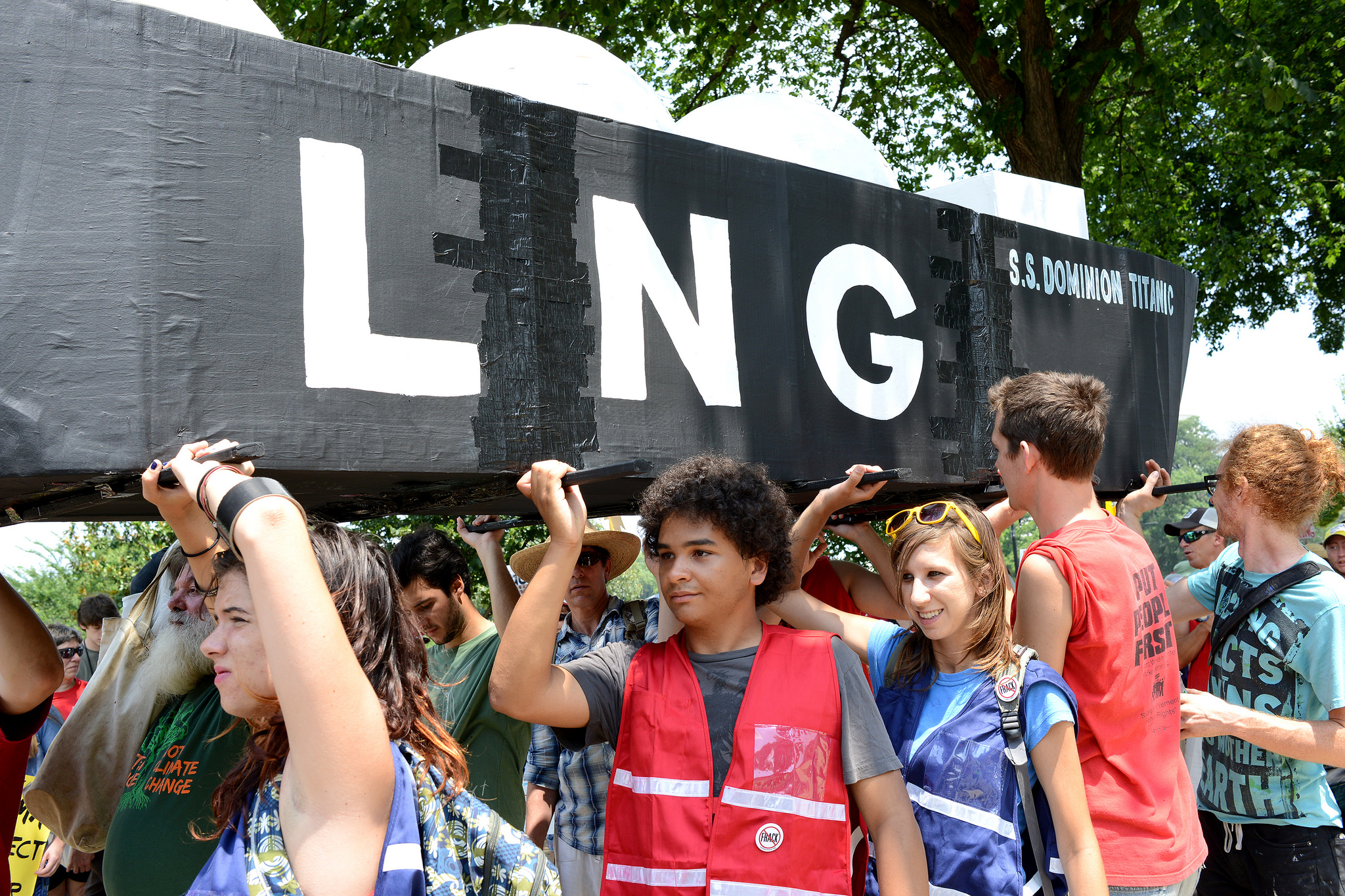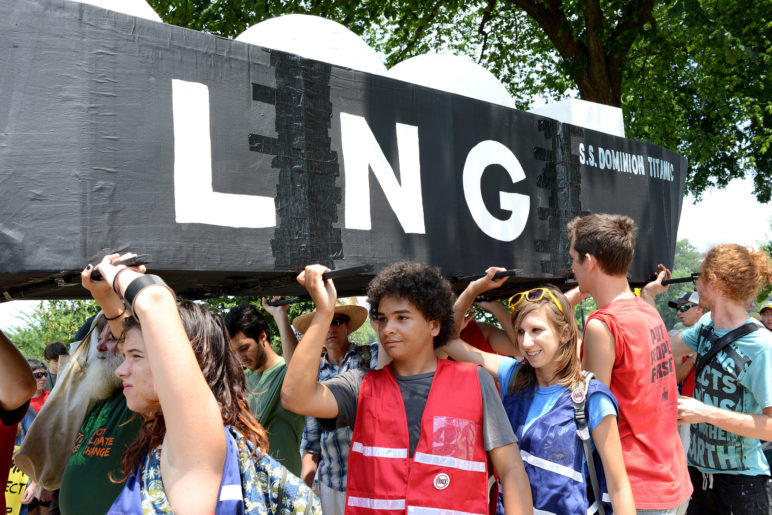If you live in Cascadia—Washington State, Oregon, or British Columbia—you might think fracking is not really your problem. You might also be under the impression natural gas isn’t all that bad compared to oil and coal.
But think again.
“Natural gas” is slick industry branding for methane gas, more and more of which is extracted by fracking. And don’t be fooled by the mantra that it “burns cleaner” either. Even without being burned it’s dirty stuff. Fracking itself pollutes soil, water, and air, but methane gas pollutes constantly as it is extracted, transported, and stored. Methane—the main component of fossil fuel gas—is an intensely powerful climate-damaging greenhouse gas without even being combusted.
So, in other words, natural gas is not a clean replacement for oil and coal. It’s just another polluting fossil fuel.
So what does it have to do with us? At least half of the natural gas we consume in this region is fracked and that share is growing—in 2014, half of Canadian gas was fracked and it’s expected to increase to 80 percent by 2035. There is a massive scale-up of oil and gas leasing and drilling for fracked gas in the inland West, and the fossil fuel industry is pushing projects to ship, transport, and refine gas on our local rail lines, in our local waters, and in our cities, including in the form of liquefied natural gas (LNG) and methanol. Fossil fuel companies are already fracking in BC.
All over again, it’s our local communities up against industry wheeling and dealing to force fossil fuel infrastructure and export schemes through our region—only this time it’s about fracked gas, not coal and oil.
So, to protect our families and our communities, we need to know how to talk about fracked fossil fuel gas. Here’s a cheat sheet based on research and expertise from Resource Media, Sierra Club, the Power Past Fracked Gas coalition, and Sightline Institute.
Special thanks to Liz Banse, Anna Doty, Marcela Gara, Kelsey Hamlin, Brendan McLaughlin, Rebecca Ponzio, Tarika Powell, and Jasmine Zimmer-Stucky.

Original Sightline Institute graphic, available under our free use policy.











Kristina
Hi there, I was just wondering about this as I make changes to my home. I was wondering if natural gas is more efficient than electric for stove and heating, but it sounds like supporting the natural gas industry is not the way to go overall. Would you say this is correct? I should stick with electric for all heating and appliances? Thank you!
Eric de Place
Thanks for writing, Kristina. Electric appliances are the best path toward a carbon-free future. So even though gas heating and cooking can be relatively efficient, it’s ultimately not as good for us as a 100% power grid (coming soon to a region near you) and appliances that run off clean electricity.
Phil B.
We switched out our gas oven for induction. Our PUD’s energy mix is 95% clean, so there really is a significant difference in GHG emissions. Our first changes beforehand were line drying our clothes (let’s just face the fact dryers are useless planet heaters) an electric car & solar array. We did HE & energy smart W/D. We couldn’t be happier with the results of our decarbonization!!
Teresa
I’m curious about Renewable Liquid Gas from digesters and other methane sources such as garbage, waste water, dairy and brewing industries. Apparently these captured gases can be mixed and/or replace fracked gases using the same pipeline infrastructure. Is anyone using 100% (or moving in that direction) to replace fracked LNG?